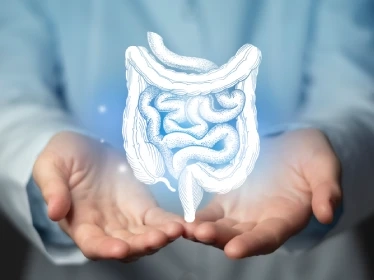疫苗在维护您孩子长期健康中的作用
作为父母,我们自然而然地努力为孩子提供最好的,竭尽全力保护他们免受可能危害他们健康的一切。虽然我们关注他们的教育和应急准备,但我们可能忽视了他们健康的一个关键方面:预防疾病。预防保健对于管理可能对您孩子造成严重危害的疾病至关重要,而疫苗是其中的关键组成部分。此外,疫苗在保护患有慢性疾病的儿童方面发挥着至关重要的作用。
疫苗如何保护我的孩子?
虽然疫苗并非旨在直接预防哮喘、糖尿病或过敏等慢性疾病,但它们在保护儿童健康方面的作用是不可或缺的。疫苗是预防保健的基石,通过刺激免疫系统识别和对抗有害病原体,防止其引起严重疾病。它们是保护儿童免受可能加重或复杂化现有慢性疾病的传染病的最有效工具之一。此外,某些疫苗有助于预防感染,如果不加以治疗,可能会导致以后的慢性健康问题。
| 保护弱势儿童对于患有慢性疾病、健康状况常常更为脆弱的儿童,疫苗尤为重要。他们的免疫系统可能已经承受压力,使他们更容易受到感染。在这种情况下,一个看似不太严重的疾病可能迅速升级为严重的健康威胁。疫苗提供了一道关键防线,确保这些儿童不太可能感染可能进一步削弱他们健康的感染。例如,对于患有哮喘等呼吸道疾病的儿童,流感和肺炎球菌疫苗尤为重要,因为这些疫苗有助于预防可能导致住院或加重其慢性疾病的进一步并发症。疫苗通过提供对可能导致住院或加重其疾病的疾病的保护屏障,有助于减少严重并发症的风险。 |
预防慢性健康问题的发展除了预防即时感染外,疫苗还可以预防可能导致长期健康问题的疾病。一个例子是乙型肝炎疫苗,它可以预防导致慢性肝病甚至肝癌的病毒,如果不加治疗。同样,人乳头瘤病毒(HPV)疫苗可以预防某些类型的癌症,如与慢性HPV感染相关的宫颈癌。通过这种方式,疫苗不仅为患有现有健康挑战的儿童提供了积极的措施,也为健康的儿童提供了积极的措施。通过预防可能最终导致慢性疾病的感染,疫苗有助于确保所有儿童有机会健康成长和增强抵抗力。 |
为什么更新流感和肺炎球菌疫苗很重要
像流感疫苗和肺炎球菌疫苗这样的疫苗也受到高度推荐,因为它们可以预防对患有持续健康问题的儿童特别严重的感染。流感疫苗应每年接种一次,肺炎球菌疫苗通常在2、4、6和12-15个月龄时接种。这些疫苗有助于预防并减少住院的可能性。对于患有慢性疾病的儿童,某些疫苗尤为重要,以维持他们的健康。
流感疫苗对儿童尤为重要,因为它是一种重要的保护措施,可以预防一种可能导致严重并发症的病毒,尤其是对于免疫系统发育中的年幼儿童。流感,通常称为流感,不仅是季节性的不便;它还可能导致严重的健康问题,如肺炎、脱水,甚至加重哮喘或糖尿病等慢性疾病。对于已有健康问题的儿童,流感可能尤为危险,增加住院的风险。建议每年接种流感疫苗,以确保您孩子的免疫系统准备好对抗最新病毒菌株,减少严重疾病及其相关并发症的可能性。
通过为孩子接种流感疫苗,您不仅可以保护他们免受潜在危害,还可以通过帮助预防这种高度传染性病毒的传播,为更广泛的社区健康做出贡献。
咨询我们的全科医生,了解您孩子更新流感或肺炎球菌疫苗的资格。 访问我们的诊所
儿童推荐疫苗接种
新加坡卫生部提供国家儿童免疫接种时间表(NCIS),建议儿童接种12种疾病的疫苗,包括结核病、乙型肝炎和流感。该时间表包括根据传染病法案对麻疹和白喉强制接种的疫苗。卫生部与免疫专家委员会(ECI)定期审查疫苗,以确保其有效应对当地疾病负担,同时保持高标准的安全性、有效性和成本效益性。
更多详情,请访问以下网站:卫生部国家推荐疫苗。
根据国家儿童免疫接种计划(NCIS),新加坡公民儿童在CHAS全科医生诊所可以获得疫苗的全额补贴*。(适用于某些疫苗品牌。请参阅 https://go.gov.sg/vaccine-list 了解最新的受补贴疫苗品牌。)
致电您附近的Healthway Medical GP诊所预约您孩子的疫苗接种。
确保我们的孩子定期接种疫苗对于他们的整体健康和幸福至关重要。通过及时接种疫苗,我们不仅可以保护孩子免受可预防的疾病,还可以通过预防传染性疾病的传播,为我们社区的健康做出贡献。
作为父母,让我们积极地优先考虑孩子的疫苗接种计划。共同努力,我们可以为我们的孩子创造一个更健康、更安全的环境,让他们茁壮成长。记住,今天的健康孩子为明天的所有人创造了更健康的未来。通过与您的儿科医生或全科医生安排咨询,您可以掌握信息并采取积极措施,确保您小宝贝的健康,并为创造更健康的社区做出贡献。




 HealthHub
HealthHub


